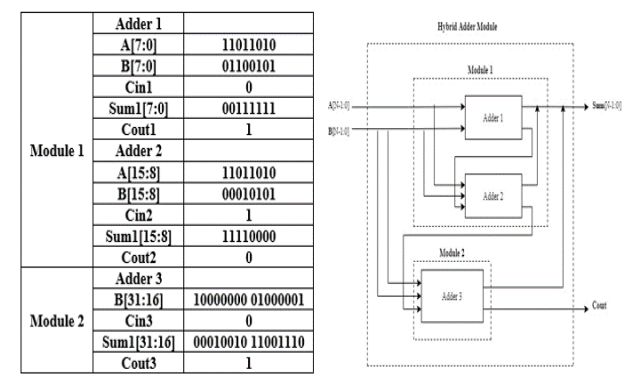Design and Performance Analysis of Various 32-bit Hybrid Adders using Verilog
Also Available Domains Xilinx Vivado|Xilinx ISE
Objective
The main objective of this paper is to implementation of different type of 32-bit VLSI adders will be done using differing types of combination of adders and logic.
Abstract
NOTE: Without the concern of our team, please don't submit to the college. This Abstract varies based on student requirements.
Block Diagram

Specifications
Software Requirements:
· Xilinx ISE14.7 suite/Xilinx Vivado2018.3.
· HDL: Verilog.
Hardware Requirements:
o Microsoft® Windows XP.
o Intel® Pentium® 4 processor or Pentium 4 equivalent with SSE support.
o 512 MB RAM.
o 100 MB of available disk space.
Learning Outcomes
· Basics of Digital Electronics.
· Concept of binary addition.
· Different types of binary adders.
· Introduction to Verilog Coding.
· Different modeling styles in Verilog.
· Data Flow modeling.
· Structural modeling.
· Behavioral modeling.
· Mixed level modeling.
· Introduction to adders design.
· About hybrid addition process.
· Knowledge on propagation of sum and carry.
· Knowledge on adders.
· About approximation computing.
· Applications in real time.
· Xilinx ISE14.7 suite / Xilinx Vivado2018.3 for design and simulation.
· Generation of Netlist.
· Solution providing for real time problems.
· Project Development Skills:
o Problem Analysis Skills.
o Problem Solving Skills.
o Logical Skills.
o Designing Skills.
o Testing Skills.
o Debugging Skills.
o Presentation Skills.
o Thesis Writing Skills.





 Paper Publishing
Paper Publishing
